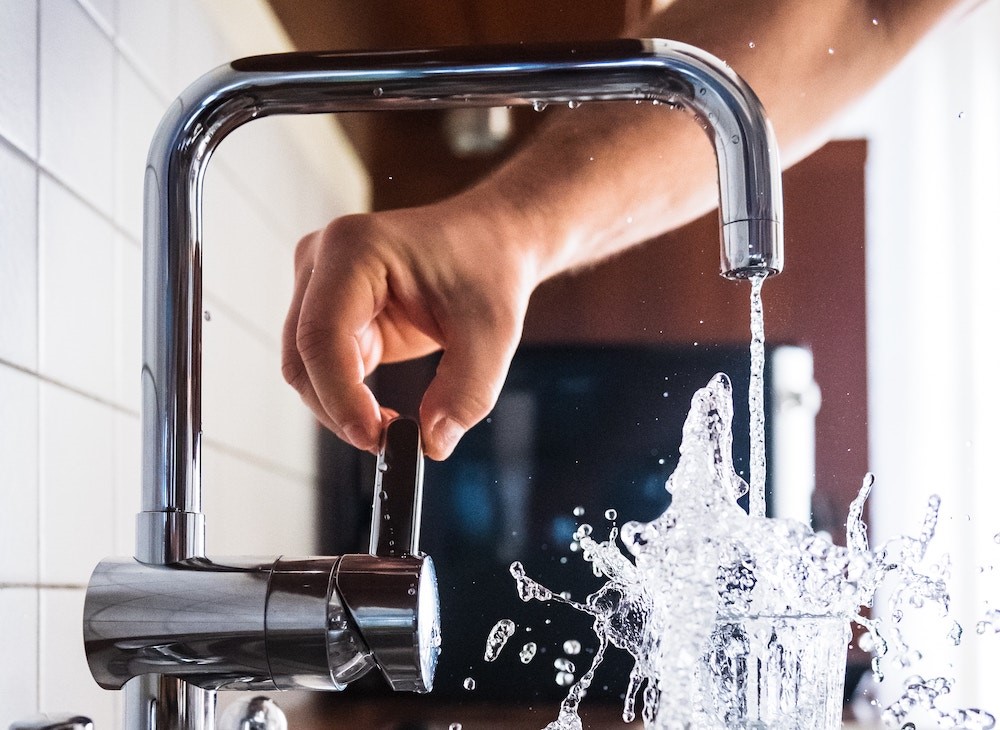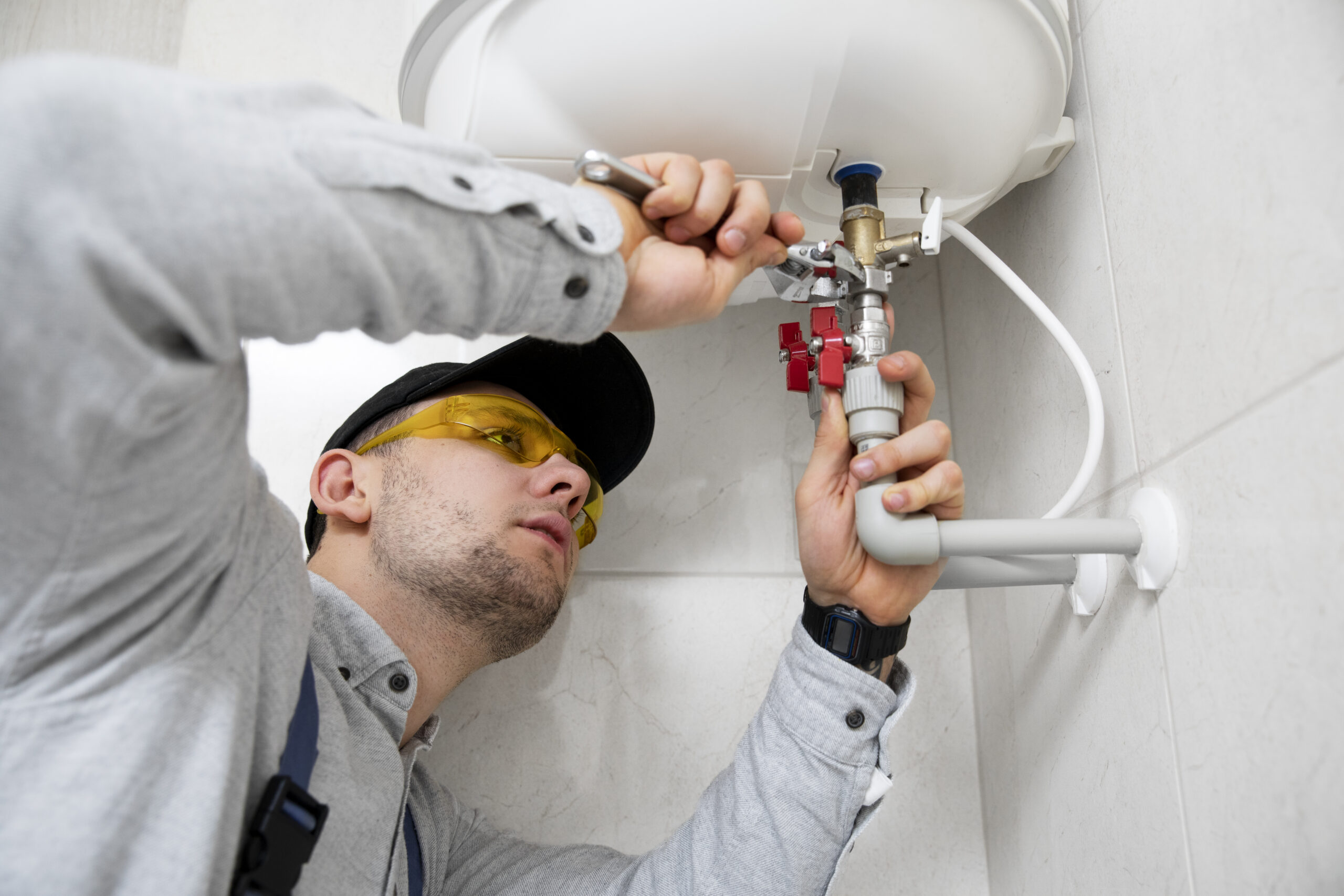How to Handle Emergency Plumbing Problems Before Professional Help Arrives
How to Handle Emergency Plumbing Problems Before Professional Help Arrives
Blog Article
What are your opinions on Expert Tips for Emergency Plumbing Repairs?

Pipes emergencies can strike any time, causing anxiety and potential damages to your home. Whether it's a ruptured pipe, a clogged up drainpipe, or a leaking tap, knowing how to take care of the situation until an expert plumbing professional arrives can conserve you from more problems. This post provides vital emergency pipes suggestions to assist you minimize damage and reclaim control during a pipes crisis.
Shut off the Water Supply
The primary step in any kind of plumbing emergency situation is to shut off the supply of water. For local issues, such as a leaking tap or toilet, shut off the shutoff near the fixture. In the case of a significant leakage or burst pipeline, find your home's major water shut-off valve and transform it off instantly. Recognizing the location of these valves ahead of time can save useful time throughout an emergency.
Address Little Leakages with Short-lived Fixes
Little leakages can quickly come to be significant troubles if left unchecked. Utilize these short-lived fixes up until specialist help shows up:
While these repairs aren't irreversible, they can help reduce water loss and damages.
Unclog Drains Pipes Securely
A blocked drainpipe can be an irritating and messy issue. Right here's just how to tackle it:
If these techniques don't work, avoid making use of too much pressure, as it might aggravate the clog.
Take Care Of Overflowing Toilets
An overruning commode can create immediate chaos. Here's what you should do:
Shut Off Your Hot Water Heater
In particular emergency situations, such as a burst pipe, it's wise to shut off your water heater. This protects against getting too hot or damages to the system when water stops moving. Switch off the power supply to the hot water heater (electric or gas) and let it cool to stay clear of prospective risks.
Temporarily Quit a Ruptured Pipe
A burst pipeline can cause considerable water damage in mins. To alleviate the issue:
Call a specialist plumbing technician instantly to address the issue permanently.
Take Care Of Frozen Water Lines Thoroughly
In cooler environments, frozen pipelines are a common emergency situation. If you think a frozen pipeline:
Prevent More Damage
Taking fast activity to reduce damages can save you money and time in the long run. Right here's just how:
. Have an Emergency Pipes Package
Prepare a basic pipes emergency situation kit to manage small issues efficiently. Your set needs to include:
Having these tools available can make a considerable distinction in your capacity to take care of emergency situations.
Know When to Call a Professional.
While quick fixes can aid momentarily, certain plumbing issues require immediate professional attention. Call a plumbing if:.
Immediately calling an expert guarantees the issue is dealt with correctly and prevents further complications.
Verdict.
Pipes emergency situations can be frustrating, however with the best knowledge and devices, you can take care of the scenario successfully up until help arrives. By switching off the water, dealing with little leaks, and making use of short-lived repairs, you can reduce damage and maintain your home safe. Bear in mind, these ideas are short-term solutions; constantly seek advice from a certified plumbing to handle the origin of the issue. Preparation and fast reasoning are your best allies in any kind of pipes emergency.
8 Helpful Tips for Managing Plumbing Emergencies at Home
If your plumbing system hasn’t failed once, wait for it because almost everyone has a story to tell. Sometimes, it could be simple emergencies such as a leaking pipe, a blocked cistern, or even a big burst pipe. In situations like this, you need to have some handy tips to save you some money and from possible damages.
Take care of minor issues early.
Sometimes, you could have avoided an emergency by taking proactive measures while it was still early. Some major plumbing emergencies can be a result of an ignored minor issue. We recommend that you have items like plumbing tapes and other related items. A plumbing tape can allow you to manage minor leaks before the plumber arrives.
Cut off the water supply.
This tip is essential in almost any type of leakage problem. For problems like minor leakages in the toilet or kitchen, turn off the supply that takes water to the affected pipes. If the leakage is a major pipe, you must shut off the supply valve to the entire building. This will help you avoid flooding your home and neighbors if you share a flat.
Know your plumbing system
Folks typically move into a new apartment without understanding the water supply around the building. This can prove disastrous if a water emergency arises and the plumber is far away. The previous tip will prove useless if you don’t practice this one. More importantly, know where your water shut-off valve is located – you’ll need that knowledge to prevent potential home floods.
Have some common handy tools
There are lots of plumbing emergencies that you can handle without hiring a plumber. That’s why you must keep some tools available always. Some tools that you can use to fix simple plumbing emergencies easily include plumbing tapes, screwdrivers, thread seal tapes, plungers, pliers, tape measures, and rubber gloves.
Insulate your pipes from cold
You’ll save yourself from many plumbing expenses if you protect your water pipes from the cold. This is because of the harmful effects that cold weather can have on your pipes. During winter, your pipes can burst from being overly expected to freezing temperatures. So, make sure insulators are there to keep the pipes working correctly.
Avoid practices that will clog your toilet.
Many people indulge in practices that can damage the plumbing system of the entire building. One of these is when they use their toilet to dispose-off garbage. They flush all kinds of things, such as paper towels, bandages, hairs, female sanitary products, etc., down the toilet. This will block your toilet in the long run, incurring unnecessary expenditures. Dump such waste in the trash instead.
Check your dials regularly.
Sometimes, there could be leakages in your home without noticing them in time. So, constantly monitor your water meter dial. If the dial is reading when there is nobody using water, this is an indicator that there is leaking. Check for leaks immediately. Call a plumber as soon as possible if you can’t find any.
https://www.constructionplacements.com/8-helpful-tips-for-managing-plumbing-emergencies-at-home/

I was brought to that article about What to Do During a Plumbing Emergency from a buddy on a different web address. Be sure to take the opportunity to distribute this entry if you enjoyed reading it. I thank you for your readership.
Click Here Report this page